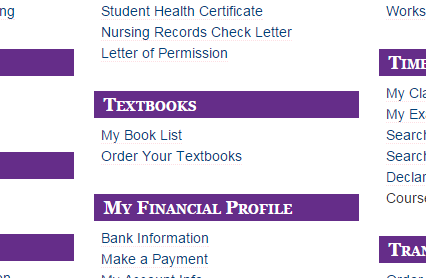Ask a Lakehead student was their favourite thing about Lakehead University is and they will probably say “the small class sizes”. You’ve probably already heard it a hundred times before, and with good reason! Lakehead University is known for it’s small class sizes, intimate atmosphere, and one-on-one experience with professors and instructors. When I take students on tours, I always love to tell them about my personal experiences with the smaller class sizes as well as what they can expect from their classes.
Starting off, if you’re an incoming Fall 2015 student, you’re probably a little bit nervous. Most high school classes are 20-30 students, and media portrays university classes as probably ten times that amount (or more!). For a lot of Universities, class sizes up to 600 students are the norm. The idea of this can be both exhilarating and daunting. It’s probably a bit exciting to imagine yourself in a huge lecture hall, listening to a professor on a microphone, learning alongside hundreds of other students. It’s completely different from what you’re used to which makes it fun and exciting! However, then you ask… “well, what if I need help? Will my professor even know who I am?” Huge classes, although interesting, can often lead to these sorts of problems.
The goods news is – Lakehead isn’t like that. My favourite thing to say on my tours is that at Lakehead University, you are not just a number. You are a student, a face, a human being that your professors, advisors, and deans want to see succeed.
At Lakehead University, over 85% of our classes have fewer than 55 students, and over 50% have less than 25. Many of them are probably smaller than your high school classes! Not so scary anymore, is it?
Of course, some classes are still large, giving you that fun and unique university experience. Generally, introductory classes are the largest – those are classes that many students take as electives or as part of their program. My largest class was in my first year as a nursing student, and was Introduction to Psychology. I also had an Introduction to Economics in my first year of business. Both of these classes were about 200-250 students. Still not nearly as large as some other universities! The nice thing was, was that my professors were still constantly monitoring my learning. They were prompt in responding to emails (one would honestly answer within 15 minutes whether it was 3am or 3pm), and if you needed help, they were more than happy to help you after class, even if they had just instructed 200 other students for three hours! It was also easy to make yourself known. Even among the sea of students, the professors were always asking questions to students in the class, making the class fun and interesting. My Intro to Psych class even had opportunities to earn extra credit!
The majority of other classes are 40 students and below – at least in my experience. This includes classes that are specific to your major such as nursing, engineering, English, French, and so on. Often times your program would be split up into two sections, so rather than teaching all students in the class at once, some students would be in one section of the class and the other at the different time/date. I enjoyed these classes the most. Even in your first year there will be in classes this small, and the classes will generally get even smaller as you move on into upper years. Some classes can get to be as small as 5 or 6 students!
Here is a photo of one of our “typical sized” (as I like to call it) lecture theaters in the ATAC building. Last year I had several classes in this room, which holds about 30-40 students.
 Photo from https://www.lakeheadu.ca/about/thunder-bay-campus/images
Photo from https://www.lakeheadu.ca/about/thunder-bay-campus/images
As I mentioned, these small classes sizes are what make Lakehead University so unique. You can to interact more with your professors, advisers, and other students, engage in discussions, and get the one-on-one help you will probably need at some point. These smaller class sizes also pave the way for closer relationships with your professors. Often times you will have a professor for multiple classes and years, and as a result, they will get to know you very well! This is a huge advantage; many of them will be more than willing to help you find jobs, advise you on your degree and direction, even put you on teams for regional and national competitions! One of my own professors actually helped me to get a job at TD Bank this past spring. I would have never gotten the position otherwise, but because he knew me from class, he was more than willing to recommend me for the position! I don’t think that would have happened if my class was 400 students. Having a smaller volume of students also means that your advisers are often available, which can be very helpful if you need direction for your degree or general advice. No two week waits until the semester is already half over!
In the end, we don’t just say that the class sizes are truly one of the best things about Lakehead. They really are! So get to know your professors and classmates, make those connections, and make your university experience one to remember! Forging those relationships can greatly benefit you both during and after your time at Lakehead, so make sure you make your face known in class and enjoy the smaller class sizes… it sure beats being one face in a sea of people!


